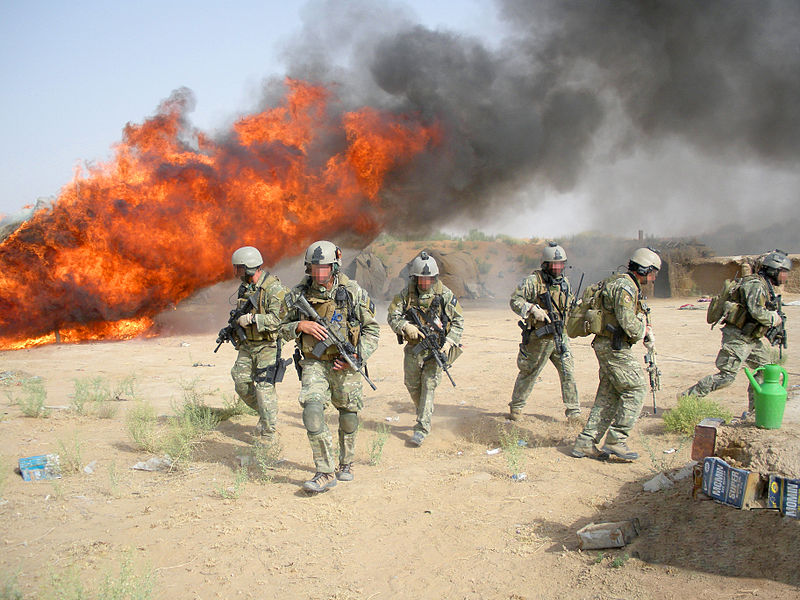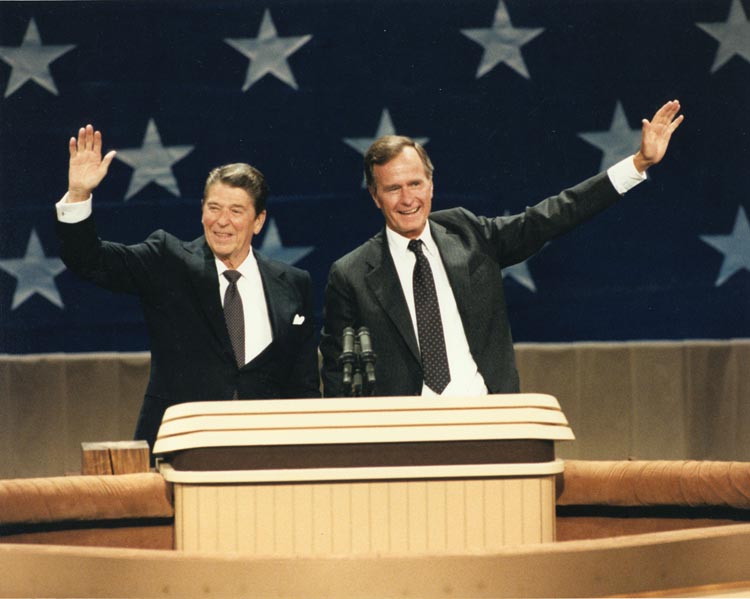For the greater part of United States history, parties have dominated politics. The earliest parties, including the Whigs, Federalists, and Democratic-Republics were unstable and never managed to obtain a permanent foot-hold, eventually fading into obscurity. However, by the 1850s two parties came into power that would eventually become the behemoths of the American political system, the Democrat and Republican parties. Originally founded to halt the expansion of slavery, the platform of the Republican Party greatly shifted shortly after the Civil War. For the most part, the Republican Party has promised to reduce the size of the government and promote more hands-off policies. However, the historical and present stance of the party brings such a platform into question, as little has been done in the near or distant past to promote such a government.

The domestic concerns of the government can simplistically be divided into two major categories: social and economic. In general, the Republican Party is socially conservative, a position that conflicts with its small government platform. In an effort to maintain traditional values, the Republican Party has often limited personal freedoms, restricting or criminalizing many behaviors that should largely be left to individual choice. At best, the Republican Party has been moderately repressive of all issues related to sexuality by opposing abortion, contraception, and gay marriage. Compared to the Republican Party of the 1920s, contraception today is relatively uncontested; however, abortion remains a prime target for attack. When abortion was federally legalized by the momentous decision in Roe v. Wade, the more conservative factions of the United States government were outraged. Since then, several states have imposed intrusive measures to dissuade people from getting an abortion, with the ultimate goal of eventually overturning the Roe v. Wade decision and once again restricting personal liberties. Around the same time, the Republican Party broke its commitment to a small government again under the Nixon administration by waging the War on Drugs. The decision opened new branches of government, including the DEA, increased government spending, and created virtually autocratic anti-drug policies. The drug war, however, has been largely ineffective, escalating the problem rather than fixing it and flooding prisons with recreational drug users. Such restrictive actions are more accurately associated with totalitarianism than small government.

Economically, the Republican platform has preached varying degrees of hands-off policies. During the Gilded Age, the Republican Party attempted to distance itself from the economy in a way never before seen, attempting to practice laissez-faire economics. In a way, the party was successful in promoting its small government plan as little legislation was passed to restrict trusts, monopolies, and pools, and when restrictions were passed, they were rarely enforced. Unfortunately, the non-involvement policy was not reciprocal for the average laborer as the Republican government did its best to support business by issuing injunctions, strike- breakers, and military force to crush the wills of the poor hoping to achieve economic liberation. Republicans advocating small government have also been responsible for passing some of the highest tariffs in United States history, including the McKinley Tariff and the Hawley-Smoot Tariff. While tariffs are not necessarily unfavorable, they greatly restrict the market on the consumer end and act to further expand the government. Considering broken promises of no new taxes under George H.W. Bush and drastic increases in national debt under the Reagan and George W. Bush administrations, it is safe to say the Republican influence on the economy has been anything but small.
In general, small government implies reduced government spending, fewer government restrictions, and an overall decrease in government involvement in both economic and social aspects of life. However, the track record of the Republican Party has shown a commitment to government expansion rather than government reduction. While, government involvement is not necessarily bad and is often necessary to maintain stability and secure Constitutional rights, the Republican Party should reevaluate its stance to make it more consistent with its actions.









